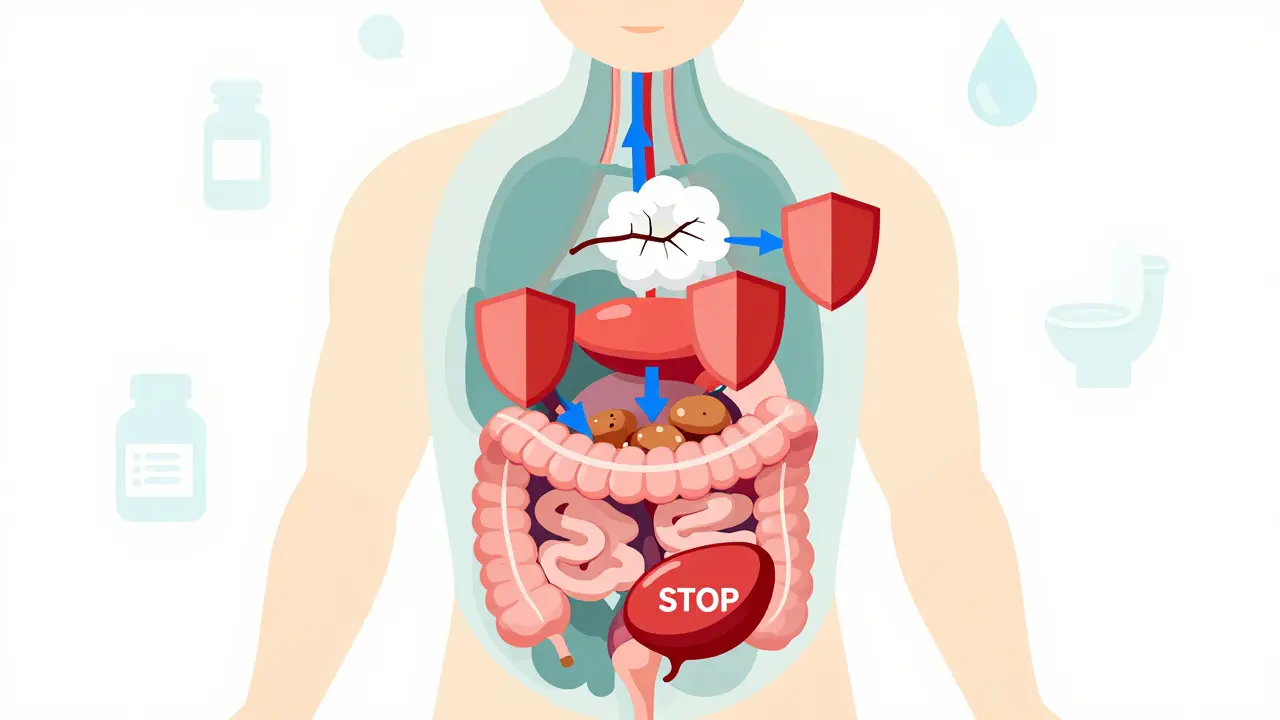Dry Mouth: Causes, Quick Relief and When to See a Doctor
Feeling dry in your mouth can be annoying and can affect speech, taste, and dental health. Dry mouth happens when your salivary glands don't make enough saliva. That saliva protects teeth, helps swallow, and keeps your mouth comfy. If you have dry mouth only occasionally, simple fixes often help. If it sticks around, you should take it seriously.
What causes dry mouth?
Common causes include medications, dehydration, smoking, mouth breathing, and some health conditions. Many prescription drugs like antihistamines, blood pressure meds, antidepressants, and painkillers list dry mouth as a side effect. Chemo and radiation to the head or neck can damage glands. Conditions such as diabetes, Sjögren's syndrome and viral infections also reduce saliva.
Quick tips to feel better now
Sip water often and keep a small bottle handy. Chew sugar-free gum or suck on sugar-free lozenges to boost saliva. Avoid alcohol, caffeine, and tobacco — they dry you out more. Use a humidifier at night if you breathe through your mouth. Try rinsing with a mild saltwater solution or an alcohol-free mouthwash to cut bacteria and freshen breath.
See a doctor if dry mouth lasts more than two weeks, if you have trouble eating or speaking, or if you get more cavities and gum problems. Tell your doctor about all medications and supplements — changing a drug or dose might fix it. They may check for underlying conditions or order simple tests.
If lifestyle changes don't help, your provider may recommend saliva substitutes or prescription drugs that stimulate saliva. Pilocarpine and cevimeline are used for some people. For dental health, dentists can apply fluoride varnish, prescribe high-fluoride toothpaste, or suggest special gels to protect teeth. Regular dental checkups matter more when saliva is low.
Brush twice daily with fluoride toothpaste and floss gently. Drink water with meals to help swallow dry food. Choose moist, softer foods if swallowing is hard. Replace mouthwashes with alcohol with alcohol-free versions. If you snore or breathe through your mouth, ask your clinician about treatments that might reduce mouth breathing.
If your dry mouth started after a new prescription, ask the prescriber whether alternatives exist. Never stop a prescribed drug without medical advice. Some drug combinations raise dry mouth risk; pharmacists can review your list and suggest safer options or timing changes.
This is a clear, practical guide to recognize and manage dry mouth. Use the tips above to get quick relief and talk with your healthcare team for lasting solutions.
Over time low saliva raises the risk of cavities, oral infections like thrush, and bad breath. Ask your dentist for regular saliva checks or caries risk assessments. Try xylitol gum after meals to cut cavity risk; it’s proven to help. Mouth sprays and gels labeled 'for dry mouth' can be handy for travel. Keep a list of symptoms to share with your clinician.
First-generation antihistamines like diphenhydramine can cause dry mouth, constipation, and urinary retention due to anticholinergic effects. Learn why second-generation options are safer and how to switch.
View More
As a blogger, I recently came across the topic of Loratadine and its potential side effect of causing dry mouth. Loratadine is an antihistamine commonly used to relieve symptoms of allergies, such as sneezing, runny nose, and itching. While it's generally considered safe, some users may experience dry mouth as a side effect. It's important to stay well-hydrated and consider alternative treatments if this becomes a persistent issue. Overall, it's crucial to consult with a healthcare professional before making any changes to your allergy treatment plan.
View More

